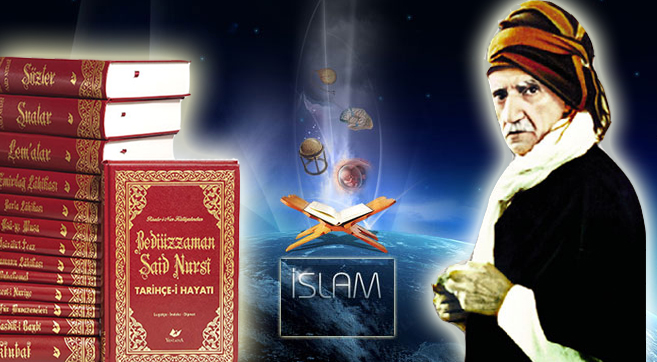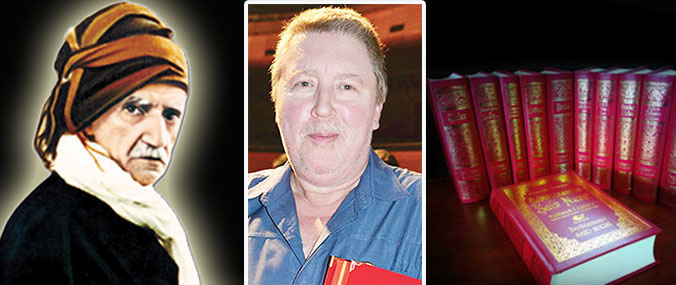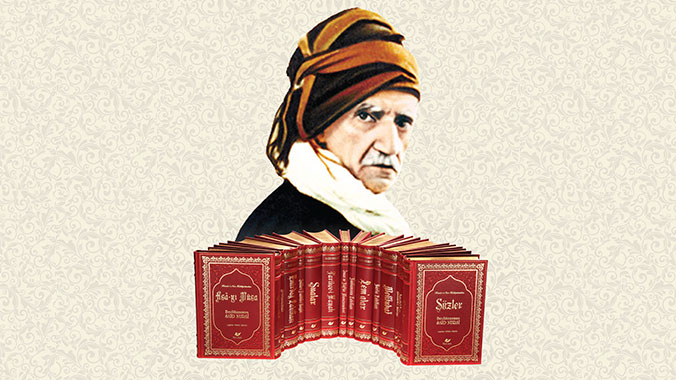And who is more guilty of oppression than one who, when he is reminded of his Lord’s signs, turns away from them knowingly? Such a person is a criminal, and We will take retribution from such criminals.
The above Quran verse (22:32) is one of a number of verses which highlight the foundational importance of dhikr for the Muslim believer. The word dhikr has been translated variously into English: ‘to remember’, ‘to bring to mind’, ‘to utter’, ‘to recite’, and so on, and is often reduced conceptually to the ritual recital and chanting of the ‘most beautiful Names’ of Allah during Sufi gatherings. Quranically, however, the meanings are much more broader than ‘ritual recital’, and cover any kind of remembering, bringing to mind and uttering – either mentally or verbally – the names and attributes of the Creator. Indeed, the fact that turning away from dhikr knowingly is considered a crime tells us unequivocally that the term cannot be reduced to the occasional Sufi practice of ritual recitation; it is clearly more foundational – and hence more serious – than that.

I mention this because Ustad Nursi’s magnum opus, the Risale-i Nur, is, among many other things, predominantly a work which very much centres the practice of dhikr in the broadest sense of the term. And this is in keeping with Nursian theology, which is very much a “theology of Divine names”. The Quran mentions the word Allah over three thousand times, and if we take into account the verses which point directly or allude to the Creator’s names and attributes, it soon becomes clear that the whole of the Quran is, in one very distinctive sense, an embodiment par excellence of dhikr and tadhakkur. And the Risale-i Nur, which, as its author often averred, is a “mirror held up to the Quran”, reflects and echoes the Quran at every step, including in its focus on the indubitable centrality and supreme significance of the ‘beautiful Names’ and attributes of the Divine. After all, not for nothing did Imam Ali (r.a.) say that, “The names of Allah are the pillars which hold up the creation.”

Bearing witness to the existence in unity of the Creator consists, among other things, in acknowledging and affirming the existence of the Divine names and attributes, the shadows and manifestations of which constitute the foundations and essences of all that is ‘other than Allah’. This acknowledgment and affirmation of the ‘beautiful Names’, together with the disavowal of human ownership over those Names, constitute part of what we know as iman or belief. The need to protect belief, which incidentally must be investigative, consistent and continuous, was basically the very reason that Ustad Nursi was impelled to write the Risale. The spectre of atheistic materialism and secularisation which, after a five hundred-year period of gestation, had eviscerated Western Europe, dragging God from His throne and placing the Divine crown on the head of human reason unaided by revelation, was, in the early 1900s, knocking at the door of the Ottoman Empire. The Ottoman Empire, which in many senses was at this historical juncture synonymous with the dar al-Islam, finally fell in 1923. Ustad Nursi, who was witness to many of the events which culminated in the creation of the new Turkish Republic, was also witness to the encroaching currents of unbelief that were washing in from the West and threatening to inundate Anatolia and beyond. The magisterial Tenth Word, a stunningly beautifully and intellectually profound defence of the concept of the hereafter and bodily resurrection, and which was one of the first treatises of theRisale to be written, was written for the most part as a response to the burgeoning currents of unbelief within the new Republic itself. The Tenth Word relies on a mix of rational indications and theistic arguments, but all of them underpinned by references both direct and allusive to the Divine names and attributes of the Creator. Not surprisingly, many of the other treatises which make up the four main books of the Risale also depend conceptually, stylistically and for argumentation on the Divine names and attributes, mention and discussion of which are a veritable leitmotif that runs throughout the whole of the Nursian intellectual output. His emotional attachment to the invocation known as Jawshan al-Kabir, in which no fewer than a thousand Divine names appear, provides further evidence that as a theologue, Said Nursi fashioned a whole career out of his penetrating exposition of the Divine names and their unequivocal significance and centrality.

It is a hundred years since Said Nursi wrote the Tenth Word, and approximately eighty years since the completion of the Risale-i Nur. However, the currents of naturalism, atheistic materialism and secularism which were knocking at the gate of the Turkish Republic have not abated; in fact, they are stronger and more pervasive than ever, not least because they were able to break through that gate and pretty much flood the entire Muslim world. The dangers to belief that Said Nursi identified back in the 1920s are no less dangerous in the 2020s, and in many ways they are actually more perilous. Secularity, secularism and secularisation are global, and no community or civilisation is immune to their threats and their toxins. Materialism is the default setting of both science and culture. In line with the Nietzschean pronouncement, God is indeed if not dead, at least absent from the hearts, minds and emotions of the denizens of late modernity, and this includes the vast majority of those who claim affiliation to Islam. As the Quran says, most people do not believe, and of those who do believe, most believe only if they can also worship other, minor gods alongside God. If this was how things were shaping up to be in 1923, then in 2023 we can say definitively that this is most certainly how things are. And the need for the Risale-i Nur as an antidote to these ills is clearly more pressing than ever. To the currents enumerated by Said Nursi back in 1923 we can addexpressions of intellectual and spiritual malaise which had not yet threatened to penetrate the Muslim world when Ustad Nursi was developing his theology –currents such as existentialism, nihilism, scientism, postmodernism.
Today we are witness to socio-cultural phenomena the likes of which Ustad Nursi thankfully never had to take into consideration, such as for instance the ideologization of sexual orientation and gender identity, which are currently making extremely large waves in Western society and which, like all toxic exports whose source is the West, are bound to find their way into Muslim societies sooner or later. And yet the Risale is as ready now, and as able, as it was when it was first written. For example, the psychological ills of late modernity can all be attributed to the overinflated status accorded to human reason and the self as a result of modernity’s deification of the ‘human I’. But for this, as for all other human ills, Said Nursi has an antidote: his treatise on the human self, known as EneRisalesi. The naturalism and materialism of the scientific elites, whose support of the socio-cultural status quo is akin to the support of the sorcerers for Pharaoh, are no less threatening to belief than they were in 1923. But for this, Said Nursi has an answer, in the form of his TabiatRisalesi, orTreatise onNature, in which he shows why causal creation – the mainstay of materialism – cannot be supported rationally or intellectually. And for those who believe that this world is the only world, and that human life ends in eternal annihilation, Ustad Nursi has the response that we have already mentioned, namely the Tenth Word on resurrection and the hereafter. For every human ill, and for every threat to the citadel of belief in the Divine, Said Nursi has what he believes – and indeed what we as readers of the Risale believe – are the answers. And we ignore these answers at our peril.
The Risale-i Nur continues, after a hundred years, to play a key role in modern Muslim theology as a vanguard against the encroachment of unbelief in late modernity. As such it is the last and most important bastion of Quranic truth in the present age, with a mission and responsibility which drink directly from the spring of the Quran and the Prophetic mission itself. Acknowledged and appreciated by the Prophet (s.a.w.), foretold by saints such as Imam Ali (r.a.) and Imam Rabbani (r.a.), the Risale-i Nur has nothing less than a revelatory role to play.
As for Said Nursi, it is my opinion that he is the most accomplished and certainly the most relevant Muslim theologian of the past five hundred years; not since Imam Ghazali have we seen an intellectual figure of this statue, calibre and output. But it is not the man that we seek to extol here, but the work of the man. And Said Nursi’s work is, by any standards, truly extraordinary. For extraordinary problems call for extraordinary solutions, and anyone who has made even the most cursory study of the Risale-i Nur will know from its thematic depth, its conceptual breadth and its spiritual profundity, there is nothing that comes even close as a comparator. I say this not only as a student of the Risale, but as someone who has worked for the past forty years in Western academe as first a Lecturer and later a Reader in Islamic Thought. I speak thus not only as a staunch admirer of Ustad Nursi, but also as someone who is versed in Muslim intellectual history, and who is able to distinguish diamonds from glass with comparative ease. And the Risale-i Nur is truly a diamond in all senses of the word.